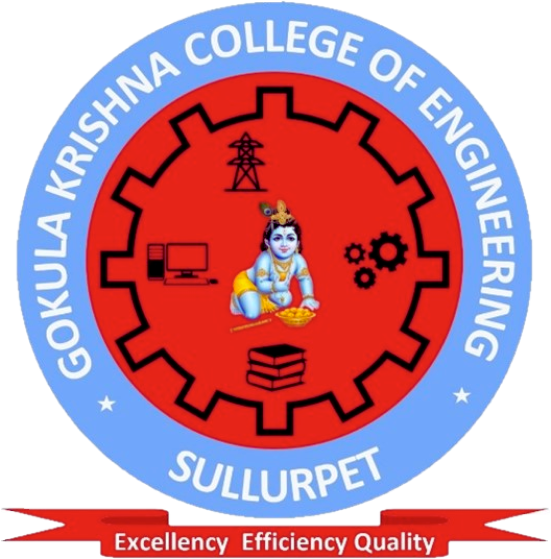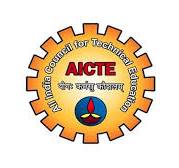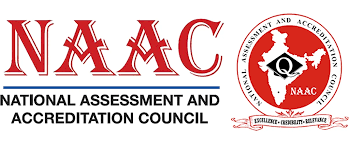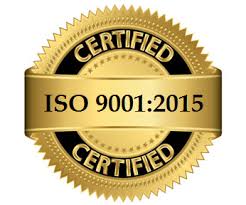CSE Department
About the Department
- The department of Computer Science and Engineering was established in the year 2001, right from the inception of the college, with an annual intake of 60 students for B.Tech programme .Department also offers M.Tech programme namely M.Tech (CSE) with an intake of 18.
- The department has a both experienced and young faculty. Majority of the faculty members are actively involved in improving their educational qualifications and actively engaged in research activity. The faculties have been attending various seminars, workshops and training programs conducted by various other reputed organizations.
- The faculty members are encouraged by the college management by providing financial support to attend and participate in workshops, conferences and seminars to update their knowledge. The department of Computer Science and Engineering offers various Research Areas:
- Computer Networks
- Big Data Technologies
- Software Engineering
- Python Programming
- Artificial Intelligence
- Soft Computing
- Internet of Things (IoTs)
- The CSE department has beautifully designed computer laboratories accommodating 200 computer systems. All laboratories are air conditioned with a power backup of 125 KVA DG set to help uninterrupted functioning of the laboratories.
- Licensed Softwares like MSDN Academic Alliance Pack, MS – Office, SUSE LINUX server, Media kit for office software etc are made available in the laboratories. All the systems are connected through LAN Facility: 20/100 MBPS Network Connections.
Courses Offered
Course | Specialization | Year of Establishment | Intake |
B.Tech | COMPUTER SCIENCE AND ENGINEERING | 2001 | 60 |
M.Tech | COMPUTER SCIENCE AND ENGINEERING | 2010 | 18 |
Vision and Mission
VISION OF THE DEPARTMENT
To become a center of excellence in the field of Electronics and Communications offering higher order of learning and conducting contemporary research thereby producing globally competitive and ethically strong Electronics and Communication Engineering professionals.
MISSION OF THE DEPARTMENT
- To provide excellence in Electronics and Communication Engineering education, research, and public service.
- To provide quality Engineering education and to make the students become entrepreneurs/ employable.
- Continuous upgradation of pedagogical Techniques for reaching heights of excellence in a global Scenario.
PEOs, Pos, PSOs
PROGRAMME EDUCATIONAL OBJECTIVES (PEOs)
| PEO 1 | To produce graduates with an understanding of the fundamentals and application of Electronics & Communication Engineering |
| PEO 2 | To enhance graduates with the latest technologies to enable them to Engineer products for real-world problems |
| PEO 3 | To produce graduates with the ability to apply, analyze, design, and develop electronic systems. |
| PEO 4 | To build leadership qualities, management skills, communication skills, and team spirit with moral values |
| PEO 5 | To involve in life-long self-learning, career enhancement, and adapt to changing multidisciplinary professional and social needs |
PROGRAMME OUTCOMES (POs)
| PO 1 | Apply the knowledge of mathematics, science, engineering fundamentals, and an engineering specialization to the solution of complex engineering problems. |
| PO 2 | Identify, formulate, review research literature, and analyse complex engineering problems reaching substantiated conclusions using first principles of mathematics, natural sciences, and engineering sciences. |
| PO 3 | Design solutions for complex engineering problems and design system components or processes that meet the specified needs with appropriate consideration for the public health and safety, and the cultural, societal, and environmental considerations. |
| PO 4 | Use research-based knowledge and research methods including design of experiments, analysis and interpretation of data, and synthesis of the information to provide valid conclusions. |
| PO 5 | Create, select, and apply appropriate techniques, resources, and modern engineering and IT tools including prediction and modelling to complex engineering activities with an understanding of the limitations |
| PO 6 | Apply reasoning informed by the contextual knowledge to assess societal, health, safety, legal and cultural issues and the consequent responsibilities relevant to the professional engineering practice. |
| PO 7 | Understand the impact of the professional engineering solutions in societal and environmental contexts, and demonstrate the knowledge of, and need for sustainable development. |
| PO 8 | Apply ethical principles and commit to professional ethics and responsibilities and norms of the engineering practice. |
| PO 9 | Function effectively as an individual, and as a member or leader in diverse teams, and in multidisciplinary settings. |
| PO 10 | Communicate effectively on complex engineering activities with the engineering community and with society at large, such as, being able to comprehend and write effective reports and design documentation, make effective presentations, and give and receive clear instructions. |
| PO 11 | Demonstrate knowledge and understanding of the engineering and management principles and apply these to one’s own work, as a member and leader in a team, to manage projects and in multidisciplinary environments. |
| PO 12 | Recognize the need for and have the preparation and ability to engage in independent and life-long learning in the broadest context of technological change. |
PROGRAMME SPECIFIC OUTCOMES (PSOs)
| PSO 1 | Able to identify Engineering problems and develop solutions in the area of Electronics, communication, signal processing, VLSI, and embedded systems |
| PSO 2 | Design and develop IoT applications using Raspberry Pi, Arduino, and other advanced processors. |
| PSO 3 | Design and synthesize various circuits using the latest hardware and EDA tools |
| PSO 4 | Design and analyze modern communication systems to meet the present and future needs of the industry with cost-effective solutions. |
| PSO 5 | Able to make use of acquired technical knowledge to get employed/to start up a new company in the field of Electronics and Communication Engineering in turn to serve the Nation. |
COURSE OUTCOMES (CSE)
QUALITY OBJECTIVES
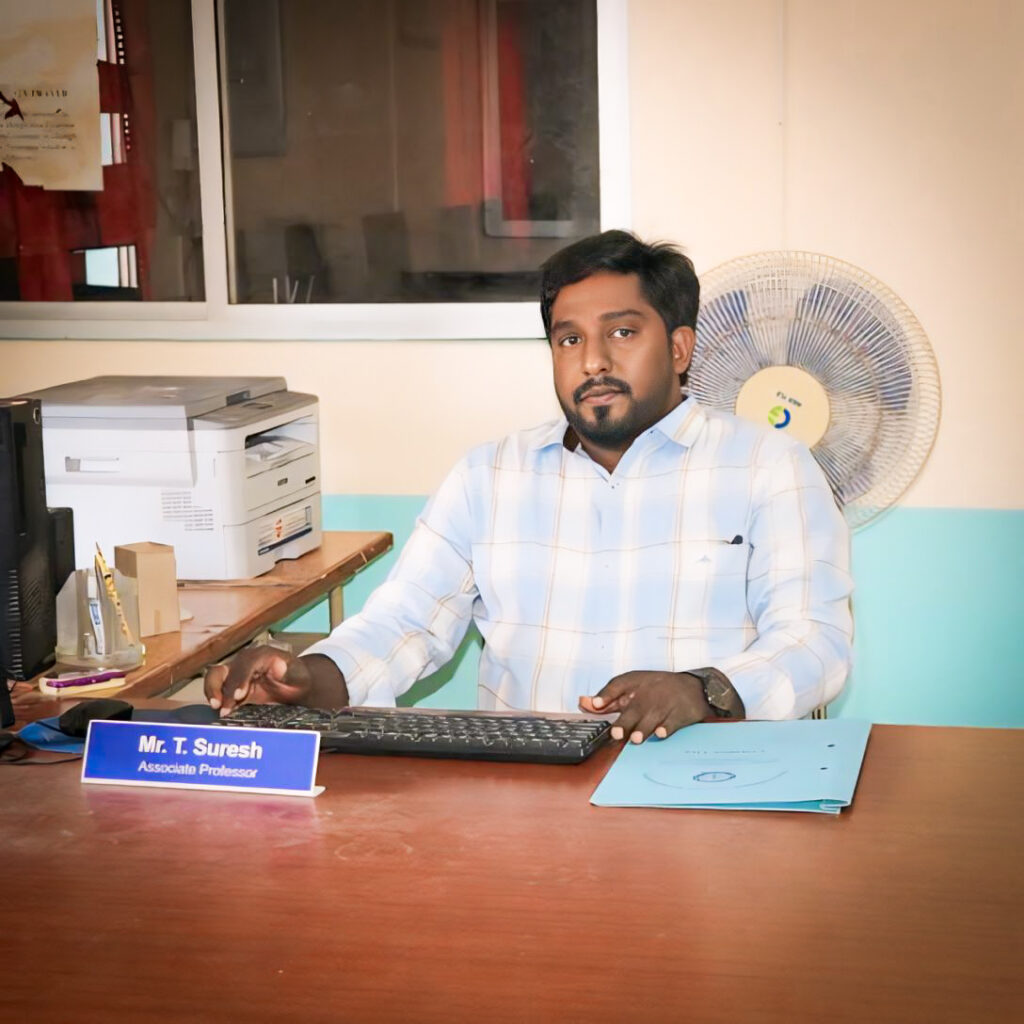
MR.T.SURESH
Associate Professor & HOD,
Department of CSE,
Gokula Krishna College of Engineering, Sullurpeta.
E-mail ID:
Mr.T.Suresh is a Associate Professor and Head of the Department of Computer Science Engineering, at Gokula Krishna College of Engineering, Sullurpeta. He was awarded his Ph.D. entitled “Light trap-based insect pest control in the paddy crops and detection of paddy pests using image processing techniques” from Vellore Institute of Technology, Chennai in 2021. He completed his M. Tech from Anurag Engineering College, JNTUH, in 2011. He completed his B. Tech in 2008 from KM College of Engineering, JNTUH. He has published more than 12 Research Articles in various reputed International Journals. He has 13 years of teaching and research experience. his research interest includes Precision agriculture, Machine learning, IoT, VLSI design etc.

